Life
Sign up for our newsletter
We summarize the week's scientific breakthroughs every Thursday.
-
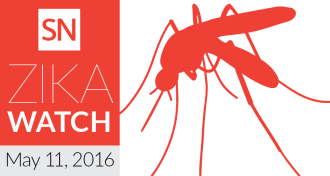 Health & Medicine
Health & MedicineThis week in Zika: First mouse study proof that Zika causes microcephaly
Three new studies in mice shore up the link between microcephaly and Zika virus infection.
By Meghan Rosen -
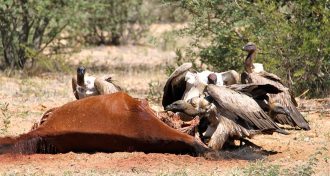 Animals
AnimalsVultures are vulnerable to extinction
Life history makes vultures more vulnerable to extinction than other birds, a new study finds, but humankind’s poisons are helping them to their end.
-
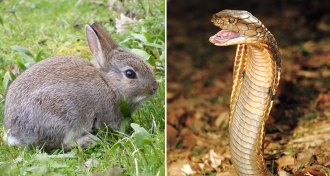 Neuroscience
NeuroscienceSocial area of the brain sets threat level of animals
How people perceive an animal’s danger level is encoded in a particular wrinkle of cortex, a brain scan study suggests.
-
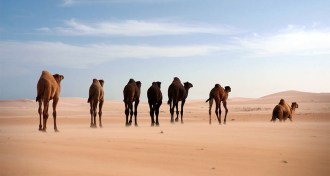 Animals
AnimalsHistory of road-tripping shaped camel DNA
Centuries of caravan domestication and travel left some metaphorical tire marks on Arabian camel genes, researchers find.
-
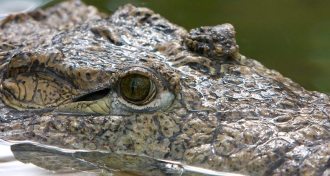 Animals
AnimalsCrocodile eyes are optimized for lurking
Crocodiles hang out at the water’s surface, waiting for a meal. A new study shows their eyes are optimized for spotting their prey from this position.
-
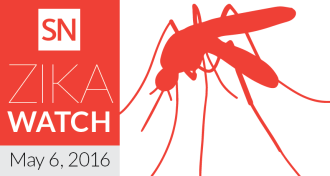 Health & Medicine
Health & MedicineThis week in Zika: An anniversary, how the virus kills brain cells and more
New weapons in the fight against Zika, how the virus shrinks minibrains, a quick paper-based test for Zika, and more in this week’s Zika Watch.
By Meghan Rosen -
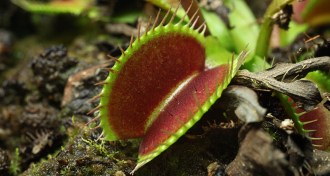 Plants
PlantsVenus flytraps use defensive genes for predation
Genetic analysis suggests that Venus flytraps repurposed plant defenses against herbivores to live the carnivore life.
-
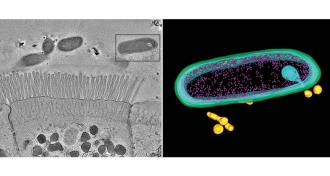 Life
LifeSome Crohn’s genes make cells deaf to messages from good gut bacteria
Genes linked to Crohn’s disease, an inflammatory bowel disease, might make people’s immune cells miss out on helpful messages sent by friendly gut bacteria.
By Meghan Rosen -
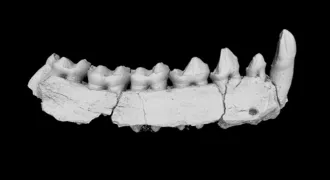 Anthropology
AnthropologyAsian primates hit hard by ancient climate change
Chinese fossils suggest primates diverged in Asia and Africa around 34 million years ago.
By Bruce Bower -
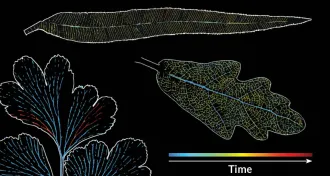 Plants
PlantsHere’s what a leaf looks like during a fatal attack of bubbles
Office equipment beats synchrotrons in showing how drought lets air bubbles kill the water-carrier network of veins in plant leaves.
By Susan Milius -
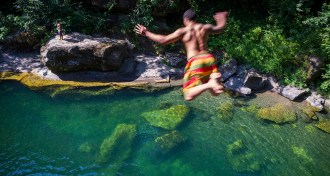 Microbes
MicrobesLeptospirosis bacterium still haunts swimming holes
Bacterial scourges lurk in warm recreational waters.
-
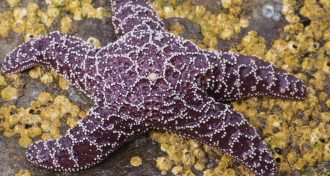 Animals
AnimalsCause of mass starfish die-offs is still a mystery
Sea stars off the U.S. west coast started dying off en masse in 2013. Scientists are still struggling to figure out the cause.